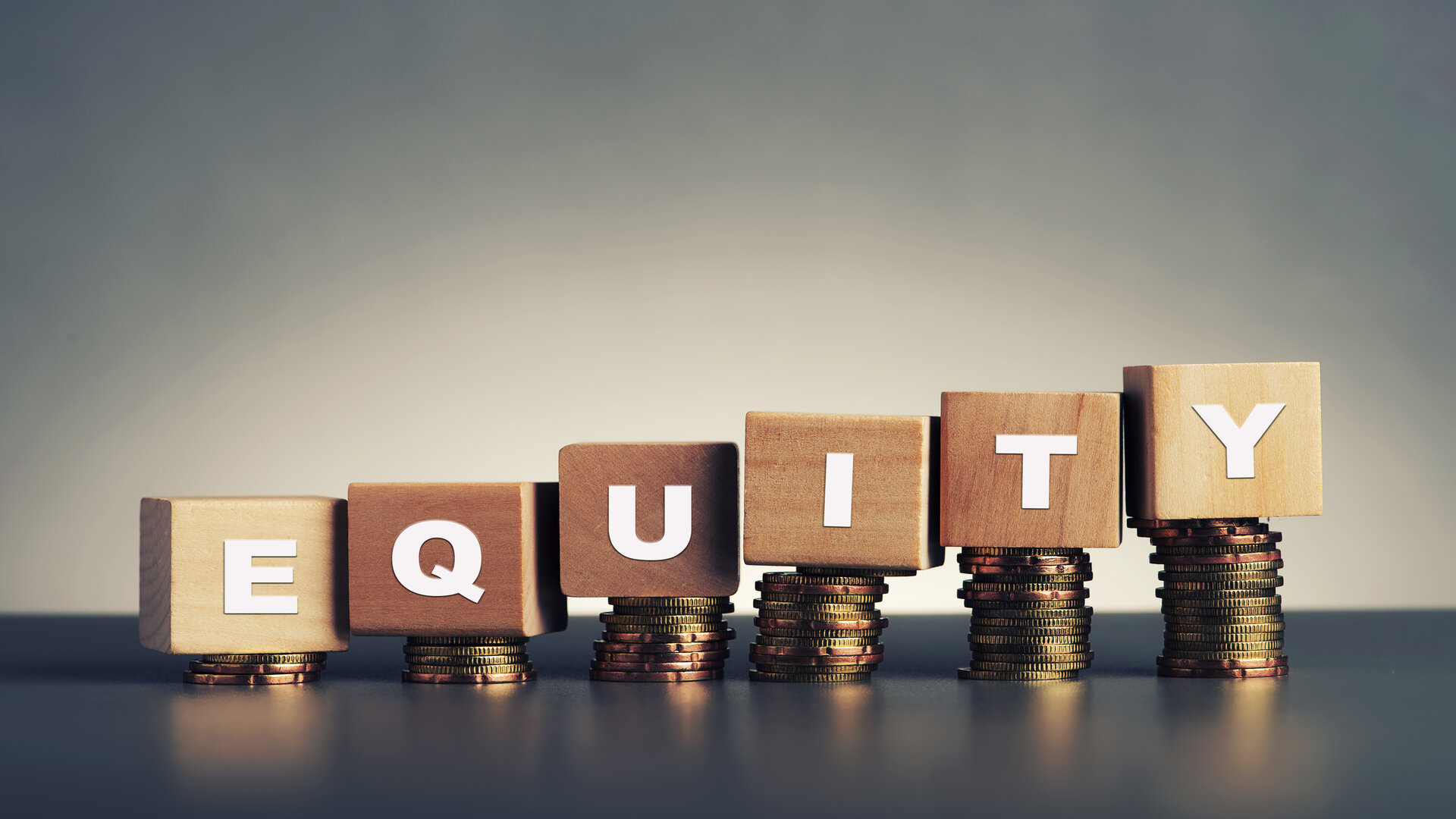Equity Investing
We invest with the intention of earning returns. As per historical data, the asset class that has the potential to offer the highest return is equity investments. There are several types of equity investments that you can invest in, the most popular ones being equity shares and equity mutual funds. This article covers equity investments and their types in detail.
Equity v/s Non-Equity investments
Though they are several types of investments, the more popular products are categorised as equity and non-equity investments.
Equity investments are the ones that invest in the stock market. Their returns are linked to the market. Hence the returns from them are not fixed and secure. Equity investment come with a certain risk attached to them. If the underlying security performs well, the return will be high; else, the return will be low. However, it is important to note that the higher the risk, the higher the return. Some equity investments include shares, mutual funds, futures, and options.
Non-equity investments, on the other hand, do not invest in equities. They are mostly fixed return securities and often give a guaranteed return. Some examples of fixed return non-equity investments are fixed deposits, recurring deposits, and debt instruments such as bonds and money market instruments.
However, it is important to note that not all non-equity investments guarantee a fixed return. Some non-equity investments have slightly volatile returns. Take, for example, debt mutual funds. They are more stable than equity investment, but their returns are not fixed or guaranteed.
Non-equity investments are not completely risk-free. There is always an element of risk attached to any investment. However, the risk in non-equity investments is lower than in equity investment.
Types of Equity Investments
There are a host of equity investment options available for investors to choose from. Below are some of the most popular forms of equity investment.
Equity shares
Shares are units of a company that represent equity ownership. People who own shares of a company are called shareholders. A retail investor can purchase the shares of a company in the primary market when the company first issued shares through an initial public offering (IPO). Alternatively, they can buy them in the secondary market when the shares are listed on the stock exchange. Shareholders gain through capital appreciation in the shares or through dividends (if any).
There are two types of shares that a company issues – common and preference shares. Common shareholders have a voting right and can participate in corporate actions through a vote. On the other hand, preference shareholders have a preference over common shareholders in case the company files for bankruptcy.
Futures and Options
Futures and options are derivative contracts. This means they derive their value from the underlying asset. The return from these contracts is dependent on the underlying security. Unlike equity shares, futures and options do not give direct ownership to the investor. They are just contracts that the investor enters to buy or sell on a future date at a predetermined price.
Futures are contracts the parties are legally obligated to fulfil at the end of the expiry period. In contrast, options give the right but not an obligation to abide by the contract upon expiry. One doesn’t have to pay the entire amount to buy futures and options contracts. Instead, they can buy or sell large quantities with just a small margin amount.
Futures and options are not suitable for the long term as they expire in 3 months. Hence, they are not suitable for the long term. They are also risky as they do not give direct ownership of the company and are just bets on its share price. Typically, investors who understand the market can speculate using them.
Equity Mutual Funds
Equity mutual funds pool money from investors and invest them in shares of different companies. They are professionally managed, offer in-built diversification, and are less expensive than direct equity investment (shares). Mutual funds are categorised as equity funds if they invest more than 65% in equity. Their performance is market-linked but is considerably less risky than direct equity investment.
Equity funds are further categorised into several types based on market capitalization, sector, and tax benefits. The types of equity funds based on market capitalization are large-cap, mid-cap, small-cap, large and mid-cap, and multi-cap funds. They are also sector-based funds that invest in a particular sector and funds that offer tax benefits such as equity-linked savings schemes (ELSS).
Mutual Funds with Equity Exposure
Mutual funds that have equity exposure but not as much as equity funds can be categorised under this head. Typically, hybrid funds fall under this category. Hybrid funds with high equity exposure can also be considered equity investments. These funds typically have exposure to multiple asset classes such as equity, debt, and cash. Hence their return and risk are not as high as equity mutual funds.
Some of the hybrid funds with a high equity exposure are aggressive hybrid funds, dynamic asset allocation funds, balanced hybrid funds, arbitrage funds, and equity savings funds.
Alternative Investment Funds
Alternative investment funds are privately pooled investments that collect money from high net worth investors (HNI) and invest them in start-ups, private equity, derivatives, equities, and others. They have a higher transaction fee than regular mutual funds and have a very high minimum investment.
These funds are also less regulated than conventional funds. However, they offer a very high return, provided the investor has the stomach to digest the high risk. All resident Indians, non-resident Indians (NRIs), and foreign nationals can invest in these funds with a minimum investment of Rs 1 crore.
Some alternative investment funds are hedge funds, venture capital funds, and private investment in public equity.
Risks Associated with Equity Investments
Equity investments are capable of offering high returns. However, that comes with a certain element of risk. Equity investments are typically exposed to the following risks.
Market risk
Equity investments trade on the stock market, and their returns depend on market demand and supply. A stock with a high demand tends to trade at a higher price than others.
A share is exposed to market volatility and often fluctuates for multiple reasons. For example, any announcement made by the company with respect to expansion or dividend or bonus issue can take the price of the share either way. Investors react to even the small news making a huge impact on the company’s share price.
Liquidity risk
Sometimes shares with a very low trading volume are often difficult to sell. Hence investors end up selling their shares at a much lower price than the fair market price.
Inflation risk
The real rate of return from an investment is much lower than the return you earn. This is mainly due to inflation. Inflation eats up your profits and reduces your purchasing power. High inflation reduces the real return and affects the company’s profits.
Foreign currency risk
Multinational companies are often exposed to foreign currency risks, resulting in lower profits.
Business related risks
Shares of a company tend to do well in a stock market when the company consistently makes good profits. A poor-performing company doesn’t sustain itself in the long term. A business is exposed to multiple risks such as competition, political and economic conditions, foreign currency risks, and operational risks. All of these impact the share price of the company. Hence it is important to check a company’s fundamentals before selecting it for investment.
How to lower risk in equity investments?
Risk is inevitable in any investment that has the potential to offer high returns. Equity investments are high-risk instruments, and taking steps to lower your investment risk is always better.
Diversification: If you want to invest in equity, diversify your investment across multiple asset classes. Other asset classes will negate the underperformance of one asset class. You can invest in bonds, debt funds, government securities, money market securities, or real estate. You can also diversify within an asset class. For example, you can diversify within equity by investing in multiple sectors. By diversifying, the risk of investing is lowered.
Invest in the right investments: Many investment options are available in the market. However, you cannot invest in all of them. Select an investment based on your goals and investment horizon. Equity investments are best suited for long-term goals such as retirement or any goal with a duration of more than five years. Choosing the right investment will help you reach your goal faster.
Monitor your investments: Once you invest, monitor your investments regularly. You will know how your investments are performing by checking your progress towards your goals. If you find a lag, then you can rebalance your portfolio.
Equity Shares vs Equity Funds
Equity shares are units of a company. Each unit gives direct ownership of the company, and investors can participate in management decisions through voting rights. The shares of a company can be purchased directly from the stock exchange through a demat account. Investment in equity shares is exposed to market volatility and hence can be risky.
In contrast, equity funds are mutual funds that invest in equity. They do not give direct ownership of a company, so investors do not have voting rights. Mutual funds can be purchased offline and online without a demat account. Though they are exposed to market volatility, they are slightly less risky than equity shares.
Who should make equity investments?
Equity investments typically suit investors with long-term goals. This is mainly because equities have the potential to give high returns in the long term. If you have a goal with a duration of more than five years, then this asset class will best suit you. Also, historically equities have given good returns in the long term. So, if you expect high returns, equities are the right investment for you.
However, it is important to note that equities come with a fair share of risk. Hence investors who can stomach such high risk can consider investing in them.
Conclusion
Equity investments have the potential to give good returns in the long term. However, they are one of the riskiest asset classes. It is always better to assess your goals before investing in them. By aligning your goals with an investment, tracking its progress becomes easy.
Remember choosing the right investment is always better than choosing the best one.
Happy investing!
Frequently Asked Questions
How are equity investments taxed?
Equity investments are taxed based on the holding period. In the short term, i.e., before a period of one year, the gains are taxed at 15%. In contrast, if the equity investments are sold after a period of one year, then gains above Rs 1,00,000 are taxed at 10%.
What are examples of equity investments?
There are different types of equity investments. Some of them are direct equity, equity mutual funds, and alternative investment funds.
How do beginners invest in equity?
For beginners who want exposure to equities, the best way to enter the market is through equity funds. Equity funds are less risky than direct equity. Moreover, they offer professional management and diversification. Starting investments with equity funds will prepare beginners to invest in direct equity.
Is equity a safe investment?
Equity investment is one of the asset classes that give the highest return. However, they are also high-risk investments. The higher the return, the higher the risk. However, the volatility smoothens down in the long term, and the returns tend to be higher than in the short term.

out-of-the-world
banking experience





